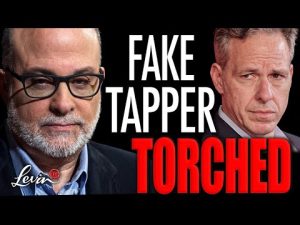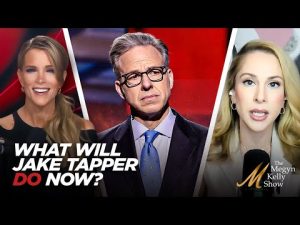In recent developments, the drama surrounding Democratic fundraising has taken a sharp turn, as questions arise about some peculiar donations. It seems that certain identities were allegedly used without the knowledge of the individuals involved to direct funds to the Democratic National Committee (DNC). Senior advisor and legal spokesperson for Donald Trump, Alina Habba, has come out swinging, expressing her disbelief that this legal mayhem hasn’t received more scrutiny. After all, if the roles were reversed and this was a Trump-related matter, the media would likely be throwing a hissy fit demanding answers faster than you can say “fake news.”
According to Habba, taking donations without informing the people whose names they are using is downright scandalous. If it were a Trump issue, the media would have had a field day, blaming him their favorite sport, and airing a laundry list of supposed misdeeds. It’s a classic case of hypocrisy—something that seems to jump right off the pages of a political thriller. And now that it appears there will be more transparency, with demands for documents and a donor list, those involved can’t hide behind a curtain of smoke and mirrors any longer.
Meanwhile, on a different front, a rather eyebrow-raising decision has been made by President Biden regarding his son, Hunter Biden. It seems we have a pardon situation on our hands. Chuck Schumer, the Senate Majority Leader, recently dodged questions about the clarity and wisdom behind this decision. Really, it was like watching a game of dodgeball where the ball is a rather inconvenient question—he simply ducked and dodged with fervor, offering nothing but silence as a response. This leaves one to wonder: does silence imply complicity? Inquiring minds can’t help but think there’s more than meets the eye here.
The implications of this pardon are bigger than a summer blockbuster ending, as it has ramifications extending far beyond Hunter himself. By pardoning his son, President Biden may have inadvertently signed a proxy deal for himself, as any joint investigations into their possible misdeeds could be squashed under legal protections. Critics might even suggest that this was a maneuver to cover up any potential wrongdoing, because if you’re pardoning someone else, could you be trying to clean your own slate at the same time? After all, the idea of presidential pardons has morphed into a hot potato, with more questions than answers.
And let’s not overlook the bits about Hunter’s legal rights. With the pardon now in play, it raises the stakes on whether he can be compelled to testify without incriminating himself. If he’s dragged back into the courtroom after this pardon, some legal eagles fear a circus of chaos that could ensue. Will he inadvertently become a pawn in a larger game that could expose some unwelcome truths about his family’s dealings? If there’s anything folks like doing, it’s speculating on what could possibly come out of this tangled web of politics.
As the encore of this political theater unfolds, all eyes remain glued to find out not just what will happen next, but how deep this rabbit hole goes. Challenges to the powers of a presidential pardon, confusion over ongoing investigations, and a profound need for transparency hang in the balance. Perhaps the most pressing question is whether the curtain will ever be fully drawn back, exposing the underlying motivations behind these decisions. For now, the public waits with bated breath, popcorn in hand, for the next episode of this gripping saga.







